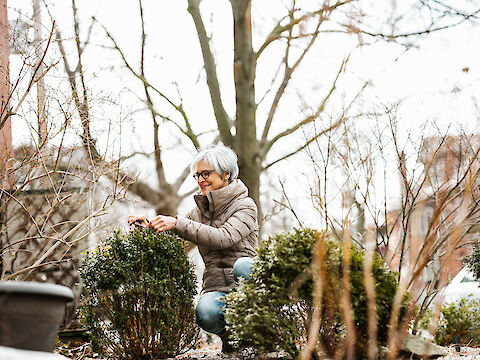
Every gardener knows that the vibrancy of spring blooms starts with the proper preparation during the colder months. Yet, for seniors with limited mobility or strength, the task of winterizing the garden may seem daunting. This article guides you through an accessible, step-by-step process to ensure your garden is nurtured, protected, and ready to flourish come spring. Regardless of experience or physical ability, you'll find these instructions easy to follow and, most importantly, feasible without causing undue strain.
Understanding Your Garden's Needs
Winter causes havoc on your garden. A sudden drop in temperature and gloomy skies stress plants, while frost may cause significant damage. That's why understanding your garden's specific needs is so crucial. Different plant types, such as rose shrubs, deciduous trees, and perennial flowers, require unique winter care. The knowledge of plant care helps tailor the approach to preserving and preparing your garden for the cold.
Step-by-Step Guide to Winterizing Your Garden
To ensure your garden gets the healthiest start in the spring, follow the steps below.
- Clearing the garden is our first step. Any dead plants or debris left on the ground can harbor disease, pests, and fungi. This task can be made easier for seniors by using long-handled tools that minimize bending and heavy lifting.
- Next, we need to focus on protecting perennial plants. These plants live for over two years and are typically dormant over winter. Wrapping them with a layer of burlap helps insulate against the cold. Also, consider planting more cold-resistant plants. These types of plants adapt to survive colder climates. Examples include Winterberry, Snowdrop, and Witch Hazel, which provide beauty but also require minimal care.
- Mulching and composting benefit the overall health of your soil. Adding a thick layer of mulch provides a blanket of protection for your soil and plant roots. As for composting, even kitchen scraps help enrich your soil. Both of these tasks require minimal effort, provide low-impact physical activity, and contribute significantly to the health of your garden.
- Finally, watering before the first freeze makes a big difference. This act helps insulate the soil, slowing the freezing process and reducing the risks of frost damage.
Maintaining Indoor Plants During Winter
You will also want to pay close attention to the upkeep of your indoor plants. Your indoor greenery may need less water as evaporation slows in cooler temperatures. Keep a closer eye on their health, maintaining humidity and ensuring they receive enough light. The winter months may make indoor conditions a bit challenging for them.
Get Gardening Assistance From Senior Helpers
Winterizing your garden might seem challenging, but dividing it into manageable steps makes it achievable, even for seniors with mobility issues. Remember, your efforts in these chilly months lay the groundwork for a spring garden teeming with life and color.
For seniors living in Auburn, Federal Way, Pacific, Puyallup, and Tacoma who need assistance with any aspect of independent living, please contact us today at Senior Helpers Greater Puyallup. We would love to discuss our services for seniors and their caregivers, including Wellness Watch and Companion Care.